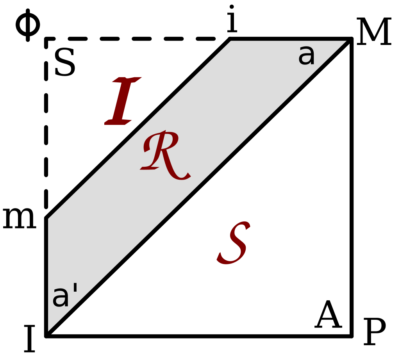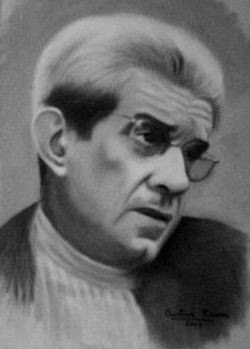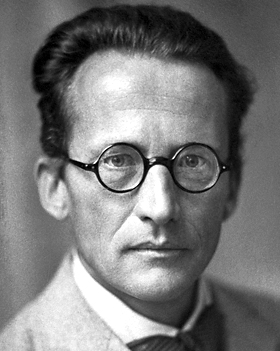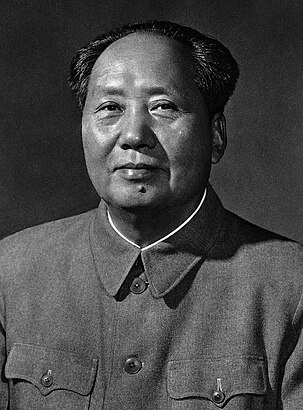Jacques Lacan: The French Psychoanalyst and His Concept of the “Mirror Stage”
- イントロダクション
- ジャック・ラカンの生涯
- ジャック・ラカンの生涯
- ラカン派のその後
- ラカンの諸概念と理論
- 鏡像段階論の解説
- 現実界・象徴界・想像界の理論
- “父の名”について
- 去勢と自己の確立の理論
- ラカンの母子関係と言語理論
- 言語活動と現実界の関係
- 言語活動と想像界の関係
- 構造論的転回の理論
- シェーマLの理論
- An Explanation of Lacan’s Mirror Stage Theory
- The Theory of the Real, Symbolic, and Imaginary
- On the “Name-of-the-Father”
- The Theory of Castration and the Establishment of the Self
- Lacan’s Theory of the Mother-Child Relationship and Language
- The Relationship Between Linguistic Activity and the Real
- The Relationship Between Linguistic Activity and the Imaginary
- The Theory of the Structural Turn
- The Theory of Schema L
- ラカンの名言集
- ラカンの理論に対する批判
- ラカンの著書一覧
イントロダクション
フランスの精神分析家ジャック・ラカンの代表作「鏡のステージ」は、人間の自己認識やアイデンティティ形成について独自の視点を提供しています。
この著書では、鏡像の概念を通じて、人間が他者との関係性や自己との対話を通じて自己を形成していくプロセスを解き明かしています。
ラカンの思想は、人間の心理や社会的な関係性について新たな視座を提供し、その影響力は現代の精神分析にも大きく残っています。
彼の独自のアプローチに触れることで、自己の理解や他者との関係性について深い洞察を得ることができるでしょう。
Introduction
Jacques Lacan, a French psychoanalyst, offers a unique perspective on self-awareness and identity formation in his seminal work “The Mirror Stage.”
In this book, he explores the concept of the mirror image to reveal how individuals shape their sense of self through relationships with others and internal dialogue.
Lacan’s theories provide fresh insights into human psychology and social dynamics, significantly influencing contemporary psychoanalysis.
Engaging with his distinctive approach can lead to a deeper understanding of oneself and one’s relationships with others.
ジャック・ラカンの生涯
ジャック・ラカンは、フランスの精神分析家であり、20世紀の精神科学に多大な影響を与えました。
彼の生涯はセミネールの時期、主な著作物、そして彼の信仰についての三つの要素に分けられます。
1-1.セミネールの時期では、ラカンは精神分析の研究グループを主宰し、自身の独自の理論を展開しました。
彼のセミネールは、彼の思想の基盤となり、多くの学者や臨床家に影響を与えました。
1-2.主な著作物では、ラカンの代表的な著書である「精神分析の諸問題」や「エコー」などが紹介されています。
これらの著作物は、彼の理論や概念を詳しく解説しています。
1-3.ラカンの信仰についてでは、彼はキリスト教の信仰に深く根ざしていました。
彼はキリスト教の思想や象徴を精神分析に取り入れ、独自の理論を構築しました。
ジャック・ラカンの生涯については以上です。
彼の思想は今でも多くの人々に影響を与えており、ラカン派の研究や応用も広がっています。
彼の理論については、後続の記事で詳しく解説します。
セミネールの時期
ジャック・ラカンはフランスの精神分析家であり、その思想は現在でも多くの人々に影響を与えています。
ラカンの思想を理解するためには、彼の生涯や主な著作物を知る必要があります。
まず、ラカンのセミネールの時期について紹介します。
セミネールとは、ラカンが定期的に開催した講義のことであり、彼の思想を深く探求する場となりました。
セミネールは1940年代から始まり、1980年代まで続きました。
セミネールの時期はラカンの思想が大きく発展する時期でもあります。
彼はフロイトの精神分析理論を独自の視点から再解釈し、鏡像段階論や言語活動の関係性など、独自の概念や理論を提唱しました。
セミネールの時期はラカンの信仰についても深く考えさせられる時期でもありました。
彼は宗教的な要素を取り入れながらも、精神分析の領域でのみ真理を見出すことを主張しました。
ラカンのセミネールの時期は彼の思想の基礎を築いた重要な時期であり、彼の後の著作物や影響力にも大きな影響を与えました。
彼の思想を理解するためには、セミネールの時期を把握することが不可欠です。
主な著作物
ジャック・ラカンは、フランスの精神分析家として知られています。
彼の主な著作物は以下の通りです。
まず、彼の代表作である『エクリ』は、彼の思想を体系的にまとめたものです。
この著書では、ラカンが言語と無意識の関係について論じています。
また、『鏡像段階と私』は、彼の有名な鏡像段階論に関する論文です。
この論文では、人間の自己意識の形成における鏡像段階の重要性を解説しています。
さらに、『父の名』は、ラカンが父親の役割と名前の重要性について論じた著作です。
彼は、父親の存在が子供の自己形成において重要な役割を果たすと考えています。
また、『言語と無意識の関係』は、ラカンが言語と無意識の関係について詳しく解説した著作です。
彼は、言語が人間の無意識にどのような影響を与えるのかを探求しています。
これらの著作物は、ラカンの思想や理論を深く理解するための重要な資料となっています。
彼の独自の視点や言語理論に興味がある方は、ぜひこれらの著作物を読んでみてください。
ラカンの信仰について
ジャック・ラカンは、フランスの精神分析家であり、20世紀の精神分析の分野で大きな影響を与えた人物です。
彼は精神分析のセミナーを通じて自身の思想を発表し、多くの著書を残しました。
ラカンの信仰についてですが、彼はフロイトの精神分析理論に深く影響を受けています。
彼はフロイトの理論を基盤としながらも、独自のアプローチを取りました。
ラカンは言語の役割を重視し、人間の無意識の構造を言語によって解釈することを提唱しました。
彼は「言語によって人間の意識が形成される」という考えを持ち、人間の主体性やアイデンティティは言語によって形成されると主張しました。
また、彼は「言葉によって欲望が形成される」とも述べており、言語の力が人間の欲望に大きな影響を与えると考えました。
ラカンの信仰は、言語という特殊なコミュニケーション手段の力を信じるものであり、それによって人間の心の内側を理解することができるというものでした。
彼の思想は、現在でも精神分析の分野で広く研究され、多くの人々に影響を与えています。
Jacques Lacan’s Life
Jacques Lacan was a French psychoanalyst who had a profound impact on 20th-century mental science.
His life can be divided into three key elements: his seminars, his major works, and his beliefs.
- The Seminar Period: During this time, Lacan led a psychoanalytic study group and developed his unique theories. His seminars became the foundation of his ideas and influenced many scholars and practitioners.
- Major Works: Lacan’s seminal texts, such as “The Problems of Psychoanalysis” and “Ecrits,” detail his theories and concepts. These works offer an in-depth exploration of his ideas.
- His Beliefs: Lacan was deeply rooted in Christian faith. He integrated Christian thoughts and symbols into psychoanalysis to construct his unique theories.
In summary, Jacques Lacan’s legacy continues to influence many people, with Lacanian research and applications still expanding today. Future articles will delve further into his theories.
The Seminar Period
Jacques Lacan, a French psychoanalyst, still impacts many with his ideas today. To understand Lacan’s thoughts, one must explore his life and major works. Let’s begin with the seminar period.
Lacan’s seminars were regular lectures where he deeply explored his ideas. These seminars ran from the 1940s to the 1980s, a time of significant development for Lacan’s theories. He reinterpreted Freud’s psychoanalytic theories, proposing concepts like the mirror stage and the relationship between language and the unconscious.
This period also saw Lacan’s contemplation of faith. While integrating religious elements, he asserted that truth lies solely within the realm of psychoanalysis. The seminar period was crucial in shaping Lacan’s theories, heavily influencing his later works and legacy. Understanding this period is essential to grasp his ideas.
Major Works
Jacques Lacan, known as a French psychoanalyst, authored several significant works. His major texts include:
- “Ecrits,” a comprehensive collection of his ideas, discussing the relationship between language and the unconscious.
- “The Mirror Stage,” an essay detailing the importance of the mirror stage in self-awareness.
- “The Name of the Father,” a work exploring the father’s role and the significance of names in identity formation.
- “The Relationship Between Language and the Unconscious,” where Lacan examines how language influences the unconscious mind.
These works are crucial for understanding Lacan’s theories. Those interested in his unique perspectives and language theories should explore these texts.
Lacan’s Beliefs
Jacques Lacan, a prominent 20th-century French psychoanalyst, profoundly influenced psychoanalysis. Through his seminars and numerous writings, he shared his ideas.
Regarding Lacan’s beliefs, he was heavily influenced by Freud’s psychoanalytic theories but developed his own approach. He emphasized the role of language, proposing that the structure of the unconscious is shaped by language. Lacan believed that human subjectivity and identity are formed through linguistic interactions.
He also posited that “desire is constructed by language,” highlighting the significant impact of language on human desires. Lacan’s belief in the power of language was central to his understanding of the human psyche. His ideas continue to be widely studied and influential in the field of psychoanalysis.
ジャック・ラカンの生涯
ジャック・ラカンは、フランスの精神分析家であり、20世紀の精神科学に多大な影響を与えました。
彼の生涯はセミネールの時期、主な著作物、そして彼の信仰についての三つの要素に分けられます。
1-1.セミネールの時期では、ラカンは精神分析の研究グループを主宰し、自身の独自の理論を展開しました。
彼のセミネールは、彼の思想の基盤となり、多くの学者や臨床家に影響を与えました。
1-2.主な著作物では、ラカンの代表的な著書である「精神分析の諸問題」や「エコー」などが紹介されています。
これらの著作物は、彼の理論や概念を詳しく解説しています。
1-3.ラカンの信仰についてでは、彼はキリスト教の信仰に深く根ざしていました。
彼はキリスト教の思想や象徴を精神分析に取り入れ、独自の理論を構築しました。
ジャック・ラカンの生涯については以上です。
彼の思想は今でも多くの人々に影響を与えており、ラカン派の研究や応用も広がっています。
彼の理論については、後続の記事で詳しく解説します。
セミネールの時期
ジャック・ラカンはフランスの精神分析家であり、その思想は現在でも多くの人々に影響を与えています。
ラカンの思想を理解するためには、彼の生涯や主な著作物を知る必要があります。
まず、ラカンのセミネールの時期について紹介します。
セミネールとは、ラカンが定期的に開催した講義のことであり、彼の思想を深く探求する場となりました。
セミネールは1940年代から始まり、1980年代まで続きました。
セミネールの時期はラカンの思想が大きく発展する時期でもあります。
彼はフロイトの精神分析理論を独自の視点から再解釈し、鏡像段階論や言語活動の関係性など、独自の概念や理論を提唱しました。
セミネールの時期はラカンの信仰についても深く考えさせられる時期でもありました。
彼は宗教的な要素を取り入れながらも、精神分析の領域でのみ真理を見出すことを主張しました。
ラカンのセミネールの時期は彼の思想の基礎を築いた重要な時期であり、彼の後の著作物や影響力にも大きな影響を与えました。
彼の思想を理解するためには、セミネールの時期を把握することが不可欠です。
主な著作物
ジャック・ラカンは、フランスの精神分析家として知られています。
彼の主な著作物は以下の通りです。
まず、彼の代表作である『エクリ』は、彼の思想を体系的にまとめたものです。
この著書では、ラカンが言語と無意識の関係について論じています。
また、『鏡像段階と私』は、彼の有名な鏡像段階論に関する論文です。
この論文では、人間の自己意識の形成における鏡像段階の重要性を解説しています。
さらに、『父の名』は、ラカンが父親の役割と名前の重要性について論じた著作です。
彼は、父親の存在が子供の自己形成において重要な役割を果たすと考えています。
また、『言語と無意識の関係』は、ラカンが言語と無意識の関係について詳しく解説した著作です。
彼は、言語が人間の無意識にどのような影響を与えるのかを探求しています。
これらの著作物は、ラカンの思想や理論を深く理解するための重要な資料となっています。
彼の独自の視点や言語理論に興味がある方は、ぜひこれらの著作物を読んでみてください。
ラカンの信仰について
ジャック・ラカンは、フランスの精神分析家であり、20世紀の精神分析の分野で大きな影響を与えた人物です。
彼は精神分析のセミナーを通じて自身の思想を発表し、多くの著書を残しました。
ラカンの信仰についてですが、彼はフロイトの精神分析理論に深く影響を受けています。
彼はフロイトの理論を基盤としながらも、独自のアプローチを取りました。
ラカンは言語の役割を重視し、人間の無意識の構造を言語によって解釈することを提唱しました。
彼は「言語によって人間の意識が形成される」という考えを持ち、人間の主体性やアイデンティティは言語によって形成されると主張しました。
また、彼は「言葉によって欲望が形成される」とも述べており、言語の力が人間の欲望に大きな影響を与えると考えました。
ラカンの信仰は、言語という特殊なコミュニケーション手段の力を信じるものであり、それによって人間の心の内側を理解することができるというものでした。
彼の思想は、現在でも精神分析の分野で広く研究され、多くの人々に影響を与えています。
Jacques Lacan’s Life
Jacques Lacan was a French psychoanalyst who had a profound impact on 20th-century mental science.
His life can be divided into three key elements: his seminars, his major works, and his beliefs.
- The Seminar Period: During this time, Lacan led a psychoanalytic study group and developed his unique theories. His seminars became the foundation of his ideas and influenced many scholars and practitioners.
- Major Works: Lacan’s seminal texts, such as “The Problems of Psychoanalysis” and “Ecrits,” detail his theories and concepts. These works offer an in-depth exploration of his ideas.
- His Beliefs: Lacan was deeply rooted in Christian faith. He integrated Christian thoughts and symbols into psychoanalysis to construct his unique theories.
In summary, Jacques Lacan’s legacy continues to influence many people, with Lacanian research and applications still expanding today. Future articles will delve further into his theories.
The Seminar Period
Jacques Lacan, a French psychoanalyst, still impacts many with his ideas today. To understand Lacan’s thoughts, one must explore his life and major works. Let’s begin with the seminar period.
Lacan’s seminars were regular lectures where he deeply explored his ideas. These seminars ran from the 1940s to the 1980s, a time of significant development for Lacan’s theories. He reinterpreted Freud’s psychoanalytic theories, proposing concepts like the mirror stage and the relationship between language and the unconscious.
This period also saw Lacan’s contemplation of faith. While integrating religious elements, he asserted that truth lies solely within the realm of psychoanalysis. The seminar period was crucial in shaping Lacan’s theories, heavily influencing his later works and legacy. Understanding this period is essential to grasp his ideas.
Major Works
Jacques Lacan, known as a French psychoanalyst, authored several significant works. His major texts include:
- “Ecrits,” a comprehensive collection of his ideas, discussing the relationship between language and the unconscious.
- “The Mirror Stage,” an essay detailing the importance of the mirror stage in self-awareness.
- “The Name of the Father,” a work exploring the father’s role and the significance of names in identity formation.
- “The Relationship Between Language and the Unconscious,” where Lacan examines how language influences the unconscious mind.
These works are crucial for understanding Lacan’s theories. Those interested in his unique perspectives and language theories should explore these texts.
Lacan’s Beliefs
Jacques Lacan, a prominent 20th-century French psychoanalyst, profoundly influenced psychoanalysis. Through his seminars and numerous writings, he shared his ideas.
Regarding Lacan’s beliefs, he was heavily influenced by Freud’s psychoanalytic theories but developed his own approach. He emphasized the role of language, proposing that the structure of the unconscious is shaped by language. Lacan believed that human subjectivity and identity are formed through linguistic interactions.
He also posited that “desire is constructed by language,” highlighting the significant impact of language on human desires. Lacan’s belief in the power of language was central to his understanding of the human psyche. His ideas continue to be widely studied and influential in the field of psychoanalysis.
ラカン派のその後
ジャック・ラカンの思想は、彼の死後も多くの人々に影響を与え続けています。
ラカン派は、彼の理論を継承し発展させたグループであり、現在も活動しています。
ラカン派の影響は、主にフランスを中心に広まっています。
彼の理論は、精神分析の分野だけでなく、文学や哲学、映画など他の分野にも影響を与えています。
ラカンの思想は、人間の欲望や無意識の働きについて新たな視点を提供し、多くの研究者やアーティストに刺激を与えています。
また、ラカン派は彼の理論を応用し、新たなアプローチや手法を開発しています。
彼らは、ラカンの概念を用いて、現代の社会問題や心理的な課題に取り組んでいます。
ラカンの思想は、その普遍性と深さから、今後も多くの研究や議論の対象となることでしょう。
ラカン派のその後の活動によって、彼の思想はより広く知られることとなりました。
彼の理論は、一部の人々には難解に思われるかもしれませんが、その深い洞察力と独自の視点は、多くの人々に新たな考え方をもたらし続けています。
ジャック・ラカンの思想は、現代の精神分析や文化研究において欠かせない存在となっています。
ラカン派の影響と現在
ジャック・ラカンの精神分析理論は、その独自のアプローチと深い洞察力から、現代の精神医学や哲学にも大きな影響を与えています。
まず、ラカン派の影響はフランス国内にとどまらず、世界中に広がっています。
ラカンの理論は、人間の心の奥底にある無意識の力や言語の役割を深く追求し、精神分析の新たな視点を提供しました。
そのため、多くの精神分析家や心理学者がラカンの理論を学び、応用しています。
また、ラカンの理論は文学や映画などの芸術分野にも大きな影響を与えています。
彼の「鏡像段階論」や「父の名」などの概念は、作品の解釈や表現に新たな可能性をもたらしました。
そのため、多くの文学作品や映画にはラカンの理論を反映した要素が見られます。
さらに、ラカンの理論は現代の社会や文化においても重要な役割を果たしています。
彼の言語理論や自己の確立の理論は、人間のアイデンティティやコミュニケーションのあり方について深い洞察を与えています。
そのため、現代社会や文化の問題や課題を考える上で、ラカンの理論は欠かせないものとなっています。
ジャック・ラカンの精神分析理論は、その独自の視点と深い洞察力から、現代の精神医学や哲学、芸術、社会や文化に大きな影響を与えています。
彼の理論は今なお多くの研究者やアーティストによって継承され、発展しているのです。
The Legacy of the Lacanian School
Jacques Lacan’s ideas continue to influence many people even after his death.
The Lacanian School, a group that has inherited and developed his theories, remains active today.
Primarily centered in France, the influence of the Lacanian School extends beyond psychoanalysis into literature, philosophy, film, and other fields.
Lacan’s theories offer new perspectives on human desire and the unconscious, inspiring many researchers and artists.
The Lacanian School applies his concepts to contemporary social issues and psychological challenges, developing new approaches and methods.
The universality and depth of Lacan’s ideas ensure they will continue to be a subject of extensive research and debate.
Through the continued activities of the Lacanian School, his theories have gained wider recognition.
Although some may find his theories complex, their profound insights and unique perspectives continue to provoke new ways of thinking.
Jacques Lacan’s ideas are indispensable in contemporary psychoanalysis and cultural studies.
Influence and Current State of the Lacanian School
Jacques Lacan’s psychoanalytic theories have profoundly impacted modern psychiatry and philosophy with their unique approach and deep insights.
The influence of the Lacanian School extends beyond France to the global stage.
Lacan’s theories delve into the unconscious and the role of language, offering new perspectives in psychoanalysis. As a result, many psychoanalysts and psychologists study and apply his theories.
Additionally, Lacan’s concepts significantly impact the arts, including literature and film. Ideas such as the “mirror stage” and “Name-of-the-Father” provide new possibilities for interpretation and expression in these fields. Many literary works and films reflect Lacanian elements.
Lacan’s theories also play a crucial role in contemporary society and culture. His language theory and ideas on self-establishment offer deep insights into identity and communication. Therefore, his theories are indispensable when considering modern social and cultural issues.
Jacques Lacan’s psychoanalytic theories, with their unique perspectives and deep insights, greatly influence modern psychiatry, philosophy, arts, and society. His theories continue to be inherited and developed by many researchers and artists today.
ラカンの諸概念と理論
ジャック・ラカンは、その独自の精神分析理論によって知られています。
彼の諸概念と理論は、人間の心の仕組みや言語の役割について深い洞察を提供しています。
まず、鏡像段階論という概念があります。これは、赤ちゃんが鏡に映った自分の姿を見て、自己の統一感を形成する過程を指します。
この段階で、自己はまだ他者との境界が曖昧な状態であり、後の心の発達に大きな影響を与えるとされています。
また、ラカンは現実界・象徴界・想像界という3つの領域の存在を主張しています。
現実界は外界の客観的な現実を指し、象徴界は言語や文化のシステムを指します。
そして、想像界は個人の内的なイメージや欲望の領域です。
これらの領域は相互に影響しあい、人間の心のあり方を形成しているとされています。
ラカンはまた、「父の名」という概念にも注目しています。
これは、父親が子供にとって象徴的な存在であり、子供の自己形成に重要な役割を果たすという考えです。
さらに、ラカンは去勢と自己の確立の関係についても論じています。
彼によれば、個人は去勢の経験を通じて自己を確立し、他者との関係を築いていくのだと言います。
また、ラカンは母子関係と言語理論の関係にも着目しています。
彼によれば、母親との関係が子供の言語能力の発達に大きな影響を与えるとされています。
さらに、ラカンは言語活動と現実界、言語活動と想像界の関係にも深く関心を持っています。
彼によれば、言語活動は現実界との関係を形成し、同時に想像界を通じて個人の内的な世界を形成するとされています。
これらの概念と理論は、ラカンの独自の精神分析理論の基盤となっています。
彼の理論は多くの批判を浴びていますが、その影響力は今もなお大きく、現代の心理学や精神医学においても重要な位置を占めています。
Lacan’s Concepts and Theories
Jacques Lacan is renowned for his unique psychoanalytic theories.
His concepts and theories offer profound insights into the workings of the human mind and the role of language.
Firstly, there’s the concept of the Mirror Stage. This refers to the process where an infant sees its reflection in a mirror and begins to form a sense of unified self. At this stage, the self is still indistinct from others, significantly influencing later psychological development.
Lacan also posits the existence of three realms: the Real, the Symbolic, and the Imaginary. The Real refers to the objective reality outside oneself, the Symbolic encompasses language and cultural systems, and the Imaginary pertains to the realm of internal images and desires. These realms interact to shape human psychology.
Lacan’s notion of the “Name-of-the-Father” is also crucial. This concept suggests that the father holds a symbolic role for the child, playing a significant part in their identity formation.
Furthermore, Lacan discusses the relationship between castration and the establishment of self. He suggests that through the experience of castration, an individual establishes their identity and builds relationships with others.
Lacan also explores the connection between the mother-child relationship and language theory. He posits that the relationship with the mother greatly influences the child’s language development.
Additionally, Lacan is deeply interested in the relationship between linguistic activity and both the Real and the Imaginary realms. He asserts that language forms a connection with the Real while simultaneously shaping the individual’s internal world through the Imaginary.
These concepts and theories form the foundation of Lacan’s distinctive psychoanalytic approach. While his ideas have faced much criticism, their influence remains significant, holding an important place in contemporary psychology and psychiatry.

The Mirror and the Child
鏡像段階論の解説
ジャック・ラカンは、フランスの精神分析家であり、20世紀の精神分析の分野で大きな影響を与えた人物です。
彼の思想は、鏡像段階論や現実界・象徴界・想像界の理論など、多くの諸概念と理論から成り立っています。
鏡像段階論は、ラカンの重要な概念の一つであり、人間の自己形成に関わる重要な要素です。
この理論によれば、赤ちゃんは鏡像段階を経験することで、自己の存在を認識し始めます。
具体的には、鏡像に映った自分の姿を見ることで、自己と他者の区別をつけることができるようになるのです。
鏡像段階論は、自己の形成における重要な過程であり、その後の個体の発達にも影響を与えます。
また、この理論は、自己の形成における他者との関係性や、自己のアイデンティティ形成にも関連しています。
ラカンの鏡像段階論は、彼の思想の中でも重要な位置を占めており、精神分析の分野で多くの議論を呼んでいます。
鏡像段階論を理解することで、人間の自己形成における重要な要素を知ることができるでしょう。
現実界・象徴界・想像界の理論
ジャック・ラカンの精神分析理論において、現実界・象徴界・想像界という概念が重要な役割を果たしています。
現実界は、私たちが日常的に経験する現実の世界を指します。
一方、象徴界は言語や記号によって構成される領域であり、意味や価値が形成されます。
そして、想像界は個人の内的な世界であり、夢や妄想などが存在します。
ラカンは、これらの領域が相互に関連し合っていると考えています。
現実界での出来事は、象徴界によって解釈され、想像界に影響を与えます。
また、象徴界の言語や記号は、現実界の出来事を捉えるための枠組みを提供します。
そして、想像界は個人の内的な欲望や幻想を表現する場として機能します。
このような現実界・象徴界・想像界の関係は、個人の心の中での対話や自己の形成にも関与しています。
ラカンは、「言語活動」という概念を導入し、個人が言語を通じて現実界を認識し、自己を形成する過程を説明しました。
言語活動は、現実界と想像界の間に位置し、個人の内的な世界を言語化する役割を果たします。
現実界・象徴界・想像界の理論は、ラカンの精神分析理論の中核を成しています。
この理論を理解することで、個人の行動や思考の背後にあるメカニズムを明らかにすることができます。
ジャック・ラカンの思想は、フランスの精神分析において重要な位置を占めており、今なお多くの研究者や臨床家によって研究されています。
“父の名”について
ラカンの「父の名」とは、彼の精神分析理論における重要な概念の一つです。
これは、個人の無意識における父親像や父親の役割についての理解を指します。
ラカンは、父の名の役割が個人の無意識において非常に重要であると考えていました。
父の名は、個人の無意識において象徴的な役割を果たし、個人のアイデンティティや自己の確立に関与しています。
具体的には、父の名は個人の無意識において「法の象徴」として機能します。
これは、個人が社会的なルールや規範に従うことを強制する役割を果たすものです。
父の名は、個人の欲望や衝動を制約し、社会的な秩序を維持する役割を果たすのです。
また、父の名は個人の無意識において「欠落の象徴」としても機能します。
これは、個人が何かを欠いているという感覚を生じさせるものです。
個人が父の名によって制約されることで、自己の不完全さや欠如を認識することができるのです。
ラカンの父の名の概念は、彼の理論の中でも重要な位置を占めています。
これによって、個人の無意識の構造や社会的な秩序の形成についての理解が深まるのです。
父の名についての理解は、ラカンの理論の中でも中心的な役割を果たしています。
これによって、個人の無意識の深層における葛藤や欲望の解明が可能になります。
また、社会的な秩序や規範に対する理解も深まることでしょう。
ラカンの父の名の概念は、彼の精神分析理論の中でも重要な要素の一つです。
この概念を理解することで、個人の無意識の複雑な構造や社会的な秩序の形成についての理解が深まることでしょう。
去勢と自己の確立の理論
ジャック・ラカンはフランスの精神分析家であり、その理論は多くの人々に影響を与えています。
彼は「去勢と自己の確立」という理論を提唱しました。
ラカンによると、人は生まれながらにして完全な存在ではありません。
生まれた瞬間から、私たちは他者との関係性の中で自己を形成していく必要があります。
この過程で、個人は「去勢」という概念に直面します。
「去勢」とは、私たちが他者との関係性の中で自己を確立するために必要な過程です。
ラカンは、この過程を通じて私たちは自己の欠如を認識し、他者との関係性を通じて自己を形成していくと述べています。
また、ラカンは「自己の確立」という概念も提唱しました。
彼によれば、私たちは他者との関係性の中で自己を形成することで、自己の存在を確立することができます。
この過程では、他者との関係性を通じて自己を見つけ、他者との対話やコミュニケーションを通じて自己を表現することが重要です。
ラカンの「去勢と自己の確立」という理論は、人間の存在や関係性について深い洞察を与えてくれます。
私たちは他者との関係性の中で自己を形成し、他者とのコミュニケーションを通じて自己を表現することで、より豊かな人間関係を築くことができるのです。
ラカンの母子関係と言語理論
ジャック・ラカンの母子関係と言語理論について解説します。
ラカンは、母子関係が人間の言語形成において重要な役割を果たすと考えました。
彼によれば、母親が赤ん坊に対して言葉をかけることで、赤ん坊は自己を形成していくのです。
この言語的な関わりは、赤ん坊が自己を認識し、他者との関係を築いていくための基盤となります。
また、ラカンは言語が現実界との関係にも影響を与えると主張しました。
言語は現実を表現する手段であり、人々は言語を通じて現実を理解し、意味を作り出しています。
そして、言語を通じて人々は想像界を形成し、自己を位置づけるのです。
ラカンの言語理論は、人間の存在や意識形成において言語の役割を強調しています。
彼の理論は、精神分析の分野において大きな影響を与えており、現在でも多くの研究や議論が行われています。
ラカンの母子関係と言語理論は、人間の心理や社会的な関係性を理解する上で重要な要素となっています。
言語活動と現実界の関係
ジャック・ラカンは、言語活動と現実界の関係について独自の理論を提唱しました。
彼によれば、人間の言語活動は現実界を構築する重要な要素であり、現実界との関係性を通じて個人のアイデンティティが形成されるとされています。
ラカンは、言語が人間の思考や感情を制約し、現実界を解釈するための枠組みを提供すると主張しています。
言語は私たちの思考や感情を制約するだけでなく、現実界を解釈するためのフィルターとしても機能します。
言語活動によって、私たちは現実界を理解し、自己を他者と区別することができるのです。
また、ラカンは言語活動が現実界を反映するのではなく、むしろ現実界を再構築すると主張しています。
言語は個人の経験や感情を言葉や表現に変換することで、現実界を再構築し、新たな意味や価値を生み出すのです。
言語活動と現実界の関係は、個人のアイデンティティ形成にも深く関わっています。
ラカンは、言語活動を通じて個人は他者との関係を築き、自己のアイデンティティを確立すると述べています。
言語は個人のアイデンティティを形成するための重要な手段であり、他者とのコミュニケーションを通じて自己を理解し、他者とのつながりを築くことができるのです。
このように、ジャック・ラカンは言語活動と現実界の関係について独自の理論を提唱しました。
彼の理論は、言語が私たちの思考や感情を制約し、現実界を解釈するための枠組みを提供するという視点から、個人のアイデンティティ形成にも深く関わっていることを示しています。
言語活動と想像界の関係
ジャック・ラカンは、言語活動と想像界の関係についても重要な理論を提唱しました。
彼によれば、言語活動は想像界を形成し、人の意識や行動に影響を与えるとされています。
言語活動は、人々がコミュニケーションを行う際に使用される言葉や表現のことを指します。
言語活動は、個人や社会の文化や価値観によって形成され、人々の思考や感情に影響を与えます。
一方、想像界とは、人々が心の中で作り上げたイメージや幻想の世界のことを指します。
この想像界は、言語活動によって形成されるとされています。
言葉や表現は、人々に特定のイメージや感情を連想させることがあります。
例えば、特定の言葉が人々にとってポジティブなイメージを呼び起こす場合、その言葉を使用することで、人々の想像界に良いイメージを植え付けることができます。
また、言語活動は、人々の想像界を制約することもあります。
言葉や表現には、特定の意味やルールがあります。
これによって、人々の想像界は一定の枠組みの中で形成されるとされています。
言語活動が人々の想像界を制約する一方で、その制約を超えることも可能です。
ラカンは、言語活動を通じて人々が自己を表現することで、自己の想像界を拡大させることができると主張しています。
以上から、ジャック・ラカンの言語活動と想像界の関係については、人々の思考や感情に大きな影響を与える重要な要素であると言えます。
彼の理論は、現代の精神分析や心理学においても広く引用され、研究されています。
構造論的転回の理論
ジャック・ラカンは、フランスの精神分析家であり、その思想は構造論的転回の理論に基づいています。
彼は、人間の心の構造が言語によって形成されると考えており、その言語には無意識の力が働いていると主張しました。
構造論的転回の理論は、ラカンがフロイトの精神分析理論を発展させたものであり、無意識の構造を解明するための方法論です。
ラカンは、人間の無意識が言語によって構築され、その構造が人間の心の中で作用していると考えました。
具体的には、ラカンは「シェーマL」と呼ばれる図形を用いて無意識の構造を表現しました。
シェーマLは、言語と欲望、そして無意識の関係を示しており、人間の心の中での葛藤や衝突を理解するためのモデルとなっています。
ラカンの構造論的転回の理論は、精神分析の分野において大きな影響を与えています。
彼の理論は、無意識の力が人間の行動や思考に与える影響を明らかにし、その解明を通じて人間の心の奥深くに迫ろうとするものです。
ラカンの構造論的転回の理論は、その難解さから批判を浴びることもありますが、彼の独自の視点と深い洞察力は、多くの研究者や学者に影響を与えています。
彼の理論は、現代の精神分析の基礎となり、さまざまな分野での研究や応用が行われています。
シェーマLの理論
ジャック・ラカンの精神分析理論の中でも重要な位置を占めるのが、「シェーマL」と呼ばれる概念です。
シェーマLは、ラカンが自己と他者の関係性を表現するために用いた図形です。
シェーマLは、大文字の”L”の形をしており、三つの要素から構成されています。
まず、上部には「現実界」が位置し、その下に「象徴界」、さらに下部に「想像界」が配置されています。
現実界は、私たちが日常的に経験する物理的な現実を指します。
一方、象徴界は、言語や記号などによって構築される社会的な秩序や意味体系を指します。
そして、想像界は、個人の内面に存在する幻想や欲望の領域を指します。
シェーマLは、これらの要素が相互に関連しながら、個人の心的構造を形成していることを示しています。
現実界と象徴界の関係は、言語や社会的なルールによって形成されます。
一方、現実界と想像界の関係は、個人の欲望や幻想によって形成されます。
このシェーマLを用いることで、ラカンは自己と他者の関係性を理解し、精神的な問題や病理を解明することを試みました。
また、シェーマLは、個人の心的構造が固定されたものではなく、常に変動し発展していることを示しています。
シェーマLの理論は、ラカンの精神分析理論の中でも重要な位置を占めています。
この概念を理解することで、私たちは自己と他者の関係性や心的な問題をより深く理解することができるでしょう。
An Explanation of Lacan’s Mirror Stage Theory
Jacques Lacan, a French psychoanalyst, profoundly influenced 20th-century psychoanalysis. His ideas encompass many concepts and theories, including the mirror stage theory and the triad of the real, symbolic, and imaginary.
The mirror stage is a crucial concept in Lacan’s work, emphasizing an essential element in human self-formation. According to this theory, infants begin to recognize their existence through the mirror stage experience. Specifically, by seeing their reflection in a mirror, they start to distinguish themselves from others.
This process is vital for self-formation and impacts subsequent personal development. The mirror stage is also related to the individual’s relationships with others and the formation of their identity.
Lacan’s mirror stage theory holds a prominent place in his thoughts, sparking much debate in psychoanalysis. Understanding this theory provides insight into critical aspects of human self-formation.
The Theory of the Real, Symbolic, and Imaginary
In Lacan’s psychoanalytic theory, the concepts of the real, symbolic, and imaginary play significant roles. The real refers to the tangible, everyday reality we experience. The symbolic is the realm of language and symbols, where meanings and values are created. The imaginary is the inner world of individuals, encompassing dreams and fantasies.
Lacan believed these realms are interconnected. Events in the real world are interpreted through the symbolic realm, influencing the imaginary. The symbolic, composed of language and symbols, offers a framework to understand real-world events. The imaginary functions as a space where inner desires and fantasies are expressed.
This interplay shapes internal dialogues and self-formation. Lacan introduced the idea of “linguistic activity,” explaining how individuals perceive the real world and form their identity through language. Linguistic activity mediates between the real and imaginary, articulating the inner world.
Understanding Lacan’s theory of the real, symbolic, and imaginary helps uncover the mechanisms behind individual behavior and thought. His ideas remain influential in contemporary psychoanalysis and psychology.
On the “Name-of-the-Father”
The “Name-of-the-Father” is a central concept in Lacan’s psychoanalytic theory. It refers to the symbolic role and understanding of the father figure in the individual’s unconscious. Lacan believed this role is crucial for identity formation and the establishment of the self.
The “Name-of-the-Father” functions as a symbolic law in the unconscious, enforcing societal rules and norms. It restrains desires and impulses, maintaining social order. Additionally, it symbolizes a sense of lack, making individuals aware of their incompleteness and absence.
This concept deepens our understanding of unconscious structures and the formation of social order. It is central to Lacan’s theory, offering insights into the complexities of the unconscious and societal norms.
The Theory of Castration and the Establishment of the Self
Jacques Lacan’s theory on castration and the establishment of the self highlights the formation of identity through relationships with others. He proposed that individuals encounter the concept of castration as part of establishing themselves within these relationships.
Castration involves recognizing one’s limitations and forming the self by navigating social interactions. This process is essential for identity formation, enabling individuals to understand their desires and relate to others.
Lacan emphasized that establishing the self requires communication and interaction with others. Through these interactions, individuals express and comprehend their identities.
Lacan’s theory provides profound insights into human existence and relationships. Understanding this theory enhances our appreciation of self-formation and interpersonal communication, enriching our human connections.
Lacan’s Theory of the Mother-Child Relationship and Language
Lacan believed the mother-child relationship significantly impacts language development. According to him, a mother’s verbal interactions with her infant lay the foundation for self-recognition and social relationships.
Language shapes reality and constructs the imaginary. Lacan’s language theory underscores the role of language in existence and consciousness formation. It continues to influence research and discussions in psychoanalysis.
The Relationship Between Linguistic Activity and the Real
Lacan proposed that linguistic activity is crucial for constructing reality and forming identity. Language shapes our thoughts and emotions, offering a framework to interpret the real world.
Lacan argued that language does not merely reflect reality but reconstructs it, creating new meanings and values. This relationship is vital for identity formation, as language helps individuals distinguish themselves from others.
Understanding Lacan’s view on linguistic activity and the real reveals how language shapes our perceptions and identity. His theory emphasizes the importance of language in interpreting reality and forming connections with others.
The Relationship Between Linguistic Activity and the Imaginary
Lacan also explored how linguistic activity shapes the imaginary, affecting consciousness and behavior. Language, formed by cultural values, influences the images and fantasies in our minds.
Linguistic activity can both constrain and expand the imaginary. While language imposes certain rules, it also allows individuals to express themselves and expand their inner world. Lacan’s theory highlights the significant impact of language on the imaginary, shaping thoughts and emotions.
The Theory of the Structural Turn
Lacan’s structural turn theory posits that language constructs the human mind’s structure, with the unconscious playing a vital role. This approach, derived from Freud’s psychoanalysis, aims to decipher the unconscious’s structure.
Using the “schema L,” Lacan illustrated the interplay between language, desire, and the unconscious. This model helps understand internal conflicts and tensions.
Despite its complexity, Lacan’s structural turn theory profoundly impacts psychoanalysis. It reveals how the unconscious influences behavior and thought, providing insights into the depths of the human mind.
The Theory of Schema L
The “schema L” is a key concept in Lacan’s psychoanalysis, depicting the relationship between the self and others. Shaped like the letter “L,” it comprises three elements: the real, the symbolic, and the imaginary.
The real is the physical reality we experience, the symbolic consists of societal norms and meanings, and the imaginary encompasses inner fantasies and desires. The schema L illustrates how these elements interact to form the individual’s psychic structure.
By using the schema L, Lacan sought to understand self-other relationships and mental issues. It demonstrates the dynamic and evolving nature of the psychic structure.
Understanding schema L offers deeper insights into self-other relationships and mental processes, highlighting its importance in Lacan’s psychoanalytic theory.

The Real, Symbolic, and Imaginary (RSI)
ラカンの名言集
ジャック・ラカンは、フランスの精神分析家として知られています。
彼の思想は非常に深く、多くの名言があります。
ここでは、その中からいくつかを紹介します。
まず、ラカンは「無意識は、言葉によって形成される」と述べています。
彼は言語の力を強調し、人間の思考や行動は言葉によって制約されると主張しています。
また、ラカンは「欲望は他者の欲望である」とも言っています。
彼は人間の欲望が他者との関係によって形成されると考えており、他者との関係が重要な要素となると述べています。
さらに、ラカンは「真実は言葉によって隠される」とも言っています。
彼は言葉の力が真実を歪めると考えており、真実を探求するためには言葉の裏側を見る必要があると主張しています。
これらの名言は、ラカンの思想の一端を示しています。
彼の独自の視点や深い洞察力は、多くの人々に影響を与え続けています。
彼の名言を通じて、彼の思想に触れてみることをおすすめします。
The Collected Sayings of Lacan
Jacques Lacan is renowned as a French psychoanalyst whose deep insights have left us with many memorable quotes. Here, we’ll explore a few of his most notable sayings.
Lacan once said, “The unconscious is structured like a language.” He emphasized the power of language, asserting that human thoughts and behaviors are shaped by words.
He also remarked, “Desire is the desire of the Other.” Lacan believed that human desires are formed through relationships with others, highlighting the importance of these connections.
Another significant quote is, “Truth is hidden by language.” Lacan argued that words can distort the truth, and to truly understand it, one must look beyond the surface of language.
These quotes offer a glimpse into Lacan’s profound thinking. His unique perspectives and deep insights continue to influence many. Exploring his sayings can provide valuable insights into his theories.
ラカンの理論に対する批判
ジャック・ラカンの理論には、一部から批判の声も上がっています。
まず、セッション技法に対する批判があります。
ラカンは、セッションでの対話を通じて患者の無意識を解明しようとしましたが、その過程で患者の言葉を解釈することが必要となります。
しかし、この解釈には主観的な要素が含まれるため、客観性に欠けるとの指摘があります。
また、ラカンの理論は非常に難解であるとも言われています。
彼の著作は哲学的な要素や専門的な用語が多く含まれており、一般の読者には理解しにくいと感じる人もいます。
そのため、ラカンの理論を広く普及させることが難しいと指摘されています。
一方で、これらの批判に対しては、ラカン派の支持者からは異論も出されています。
彼らは、セッション技法によって深層心理を解明できる可能性があると主張し、ラカンの理論の難解さこそがその深さを物語っていると反論しています。
ラカンの理論に対する批判はあるものの、彼の影響力は依然として大きく、現代の精神分析においても重要な位置を占めています。
批判と賛同が入り混じる中、ラカンの思想は今なお多くの人々に影響を与え続けています。
セッション技法への批判
ジャック・ラカンはフランスの精神分析家であり、彼の理論は世界中の精神分析家に大きな影響を与えています。
しかし、彼の理論には批判も存在します。
まず、セッション技法への批判です。
ラカンはセッション技法において、分析者が無意識の深層にアクセスすることを重視しています。
しかし、この技法は非常に難解であり、一部の批評家からは実践的な問題が指摘されています。
また、セッション技法には個々の分析者の主観的な解釈が入り込む可能性もあり、客観性に欠けるという指摘もあります。
さらに、ラカンの理論は一般の人にとって理解しにくいという批判もあります。
彼の論文や著書は非常に難解であり、一般の読者には理解しにくいと言われています。
そのため、ラカンの理論が広く普及することは難しいとされています。
以上が、ラカンの理論に対する批判の一部です。彼の理論は独自かつ深遠であり、賛否が分かれるところです。
しかし、彼の思想は精神分析の分野において重要な位置を占めていることは間違いありません。
理論的難解さへの批判
ジャック・ラカンの理論は、一部の批評家からは理解が難しいとされています。
彼の言葉や概念は、専門的な用語や哲学的なアイデアが多く含まれており、初心者にとっては理解しにくいものもあります。
そのため、ラカンの理論は一般の人々には敷居が高いと言われています。
しかし、この理論的難解さに対しても批判が存在します。
一部の批評家は、ラカンの理論が故意に難解にされていると主張しています。
彼らは、ラカンが自身の理論を一部のエリートのみに理解されるようにすることで、自身の権威や影響力を高めようとしているのではないかと指摘しています。
また、ラカンの理論には独自の用語や概念が多く含まれており、これらを理解するためには彼の著作物を熟読する必要があります。
しかし、ラカンの著作物は非常に多く、内容も非常に難解です。
そのため、初心者にとっては理解することが困難な場合もあります。
このような理論的難解さに対しては、ラカンの理論をより分かりやすく解説する試みも行われています。
彼の理論を簡潔かつ明快にまとめた解説書や講義が存在し、初心者にとっては理解しやすくなっています。
また、ラカンの理論を実際の臨床現場で活用することで、その有用性や実践的な意義を理解することもできます。
ラカンの理論的難解さは否めないものの、それに対する批判も存在します。
彼の理論を理解するためには、時間と努力が必要ですが、その価値は十分にあると言えるでしょう。
Criticisms of Lacan’s Theory
Jacques Lacan’s theories have faced criticism from various quarters.
One primary criticism concerns his session techniques. Lacan aimed to uncover the unconscious through dialogue with patients, which necessitates interpreting their words. Critics argue that this interpretation is subjective, lacking objectivity.
Additionally, Lacan’s theories are often described as highly complex. His works contain philosophical elements and specialized terminology, making them difficult for the general reader to understand. This complexity is cited as a barrier to the widespread dissemination of his theories.
However, Lacan’s supporters counter these criticisms by arguing that his session techniques can indeed reveal the depths of the unconscious and that the complexity of his theories reflects their profound nature.
Despite the criticisms, Lacan’s influence remains significant, continuing to hold a crucial position in modern psychoanalysis. His ideas, amidst both praise and critique, continue to impact many.
Criticisms of Session Techniques
Jacques Lacan, the French psychoanalyst, has significantly influenced psychoanalysts worldwide. Nevertheless, his theories have their critics.
One major critique targets his session techniques. Lacan emphasized accessing the deep unconscious through these techniques. Critics point out practical issues, noting the methods are highly complex and often subject to the analyst’s subjective interpretation, thus lacking objectivity.
Another criticism is that Lacan’s theories are difficult for the general public to grasp. His papers and books are notoriously complex, posing a challenge to broader understanding and acceptance.
These criticisms highlight some of the challenges posed by Lacan’s theories. While they are unique and profound, opinions are divided. Nonetheless, his ideas undeniably hold a vital place in the field of psychoanalysis.
Criticisms of Theoretical Complexity
Some critics argue that Jacques Lacan’s theories are hard to understand. His use of specialized terms and philosophical concepts can be daunting for beginners, making his theories seem inaccessible.
Furthermore, some critics claim that Lacan’s theories are intentionally difficult, suggesting that he aimed to make his work comprehensible only to a select elite to bolster his authority and influence.
Lacan’s writings are extensive and intricate, posing a challenge for those new to his work. However, there are efforts to make his theories more understandable through simplified explanations and introductory lectures. Additionally, applying his theories in clinical settings can help practitioners appreciate their practical significance.
While Lacan’s theoretical complexity is undeniable, the criticisms highlight the challenges in grasping his ideas. Understanding his theories requires time and effort, but the insights gained can be profoundly rewarding.
ラカンの著書一覧
ジャック・ラカンはフランスの精神分析家として知られていますが、彼の著書も多くあります。
ここでは、ラカンの著書一覧を紹介します。
邦訳著書(セミネール以外)
ラカンの著書の中で、邦訳されているものもあります。例えば、『エクリ』や『ラカン入門』などがあります。
これらの著書は、ラカンの思想や理論をより理解しやすく解説しています。
セミネールの著書
ラカンの代表的な著書として知られるのが、『セミネール』です。
セミネールは、ラカンが定期的に行った講義の内容をまとめたものであり、彼の思想の核心が詰まっています。
セミネールは、数多くの巻数がありますが、その中でも特に有名なのは『セミネール第11巻』や『セミネール第20巻』などです。
以上が、ジャック・ラカンの著書一覧です。
彼の著作は非常に難解であり、理解するのには時間と努力が必要ですが、その思想は精神分析の世界に大きな影響を与えています。
興味のある方は、ぜひ彼の著書を読んでみてください。
邦訳著書(セミネール以外)
ジャック・ラカンは、フランスの精神分析家であり、その思想は現代の心理学や文化理論に大きな影響を与えています。
ジャック・ラカンについての記事の構成を、以下にまとめておきます。
1.ジャック・ラカンの生涯
ジャック・ラカンは1901年にフランスで生まれました。
彼は医学を学び、精神分析を専門とすることを決めました。
彼はセミネールと呼ばれる集まりを主催し、多くの学生や研究者に影響を与えました。
1-1.セミネールの時期
セミネールはラカンが精神分析の理論を発展させるために開催した集まりでした。
彼はここで自身の独自の理論を展開し、多くの著作を執筆しました。
1-2.主な著作物
ラカンの主な著作物には、『鏡像段階と私我論』や『象徴の秩序と無意識の構造』などがあります。
これらの著作は彼の思想を理解するための基本的なテキストとされています。
1-3.ラカンの信仰について
ラカンは信仰心のある人物であり、キリスト教の思想にも深く影響を受けていました。
彼は自身の理論を宗教的な要素と結びつけることで、独自のアプローチを追求しました。
2.ラカン派のその後
ラカンの思想は彼の死後も多くの人々に影響を与え続けています。
彼のアイデアは現代の精神分析や文化理論において重要な位置を占めています。
2-1.ラカン派の影響と現在
ラカン派のアイデアは、現代の精神分析の理論や治療方法に大きな影響を与えています。
彼の思想はまた、文化理論やジェンダー研究などの分野でも重要な役割を果たしています。
3.ラカンの諸概念と理論
ラカンの思想は非常に複雑であり、多くの概念や理論を含んでいます。
以下にいくつかの重要な概念を紹介します。
3-1.鏡像段階論の解説
鏡像段階論は、ラカンが提唱した重要な概念です。
これは、幼児期における自己の形成と他者との関係のあり方を説明するものです。
3-2.現実界・象徴界・想像界の理論
ラカンは、人間の経験を現実界、象徴界、想像界の3つの領域に分けて理解することを提唱しました。
これらの領域は、言語や文化などの要素と密接に関連しています。
3-3.”父の名”について
ラカンは「父の名」という概念を重要視しました。
これは、個人のアイデンティティや自己の確立において重要な要素であり、ラカンの理論の中でも重要な位置を占めています。
3-4.去勢と自己の確立の理論
ラカンは、自己の確立には去勢という過程が必要であると主張しました。
これは、個人が社会的なルールや規範に従って自己を形成する必要があることを意味します。
3-5.ラカンの母子関係と言語理論
ラカンは母子関係を重要視し、言語の習得と母子関係の関連性を強調しました。
彼は言語の習得が個人のアイデンティティ形成において重要な要素であると考えていました。
3-6.言語活動と現実界の関係
ラカンは言語活動と現実界の関係を探求しました。
彼は言語が現実界をどのように構築し、個人の認識や行動に影響を与えるのかを明らかにしようとしました。
3-7.言語活動と想像界の関係
ラカンは言語活動と想像界の関係も研究しました。
彼は想像界が個人のアイデンティティや欲望の形成にどのような役割を果たすのかを探求しました。
3-8.構造論的転回の理論
構造論的転回は、ラカンが提唱した重要な理論です。
これは、人間の心の中には無意識の力が働いており、個人の行動や思考に影響を与えているという考えを示しています。
3-9.シェーマLの理論
シェーマLは、ラカンが提唱したもう一つの重要な理論です。
これは、人間のアイデンティティや欲望が言語や文化によって形成されるという考えを示しています。
4.ラカンの名言集
ラカンは多くの名言を残しており、これらは彼の思想や理論を理解する上で重要な手がかりとなります。
5.ラカンの理論に対する批判
ラカンの理論は非常に複雑であり、その難解さやセッション技法への批判も存在します。
しかし、彼の思想は現代の心理学や文化理論において重要な位置を占めています。
5-1.セッション技法への批判
ラカンのセッション技法は独自のものであり、その効果や有効性については賛否が分かれています。
一部の批評家は、その技法が過度に理論的であると指摘しています。
5-2.理論的難解さへの批判
ラカンの理論は非常に難解であり、専門的な知識を要することがあります。
このため、一部の批評家は彼の理論の普及や理解の困難さを指摘しています。
6.ラカンの著書一覧
ラカンの著書は非常に多く、彼の思想を理解する上で重要な資料となっています。
6-1.邦訳著書(セミネール以外)
ラカンの著書の中には邦訳されたものもあります。
これらの著書は日本国内で入手することができ、彼の思想をより深く理解するための貴重な資料となっています。
6-2.セミネールの著書
セミネールはラカンが主催した集まりであり、その内容は彼の思想を体系的に展開しています。
セミネールの著書は彼の理論を理解する上で欠かせない資料となっています。
以上が、ジャック・ラカンについての記事の構成です。
彼の思想や理論は非常に複雑であり、その理解には時間と努力が必要ですが、その深い洞察力と影響力は現代の心理学や文化理論において重要なものとなっています。
セミネールの著書
ジャック・ラカンは、フランスの精神分析家として知られています。
彼の著書の中でも特に重要なのが、彼のセミネールと呼ばれる講義の録音集です。
セミネールは、ラカンが1953年から1980年まで行った講義のことで、彼の思想を深く理解するために欠かせない資料となっています。
セミネールでは、ラカンが自身の理論や概念を詳細に解説しており、彼の思考の軌跡をたどることができます。
セミネールの中で特に有名な著書として知られているのは、『エコー:幻影の論理』や『欲望の論理』などです。
これらの著書では、ラカンが鏡像段階論や言語理論など、彼の独自の思考を展開しています。
セミネールの著書は、ラカンの思想を深く理解するために必読の書といえるでしょう。
彼の著作は難解な部分もありますが、その深い洞察力と独自の視点は多くの研究者や精神分析家に影響を与えています。
ラカンのセミネールの著書は、精神分析や心理学に興味のある方にとって貴重な情報源となることでしょう。
彼の思想は今なお研究され、その影響力は現代の精神医学にも及んでいます。
Lacan’s List of Works
Jacques Lacan is renowned as a French psychoanalyst, and he has authored numerous works.
Here, we introduce a list of Lacan’s publications.
Translated Works (Excluding Seminars)
Some of Lacan’s works have been translated into Japanese. Examples include “Écrits” and “Introduction to Lacan.”
These books provide accessible explanations of Lacan’s ideas and theories.
Seminars
One of Lacan’s most notable works is his “Seminars.”
These seminars compile lectures he regularly conducted, encapsulating the core of his thoughts.
The seminars span multiple volumes, with particularly famous ones including “Seminar XI” and “Seminar XX.”
Above is Jacques Lacan’s list of works.
His writings are highly intricate, demanding time and effort to comprehend, yet his ideas profoundly influence the world of psychoanalysis.
For those interested, exploring his works is highly recommended.
Structure of Articles on Jacques Lacan
Jacques Lacan is a French psychoanalyst whose ideas have had a significant impact on contemporary psychology and cultural theory.
Here’s an outline for an article on Jacques Lacan:
1. Life of Jacques Lacan
Jacques Lacan was born in France in 1901.
He studied medicine and chose to specialize in psychoanalysis.
He organized gatherings known as seminars, influencing many students and researchers.
1-1. Periods of Seminars
The seminars were gatherings organized by Lacan to develop theories in psychoanalysis.
Here, he elaborated on his unique theories and authored many works.
1-2. Major Publications
Lacan’s major works include “The Mirror Stage as Formative of the I Function” and “The Symbolic Order and Its Relation to the Unconscious.”
These texts are considered fundamental for understanding his ideas.
1-3. Lacan’s Beliefs
Lacan was a devout person influenced deeply by Christian thought.
He intertwined his theories with religious elements, pursuing a unique approach.
2. Legacy of the Lacanian School
Lacan’s ideas continue to influence many people even after his death.
His ideas hold a significant place in contemporary psychoanalysis and cultural theory.
2-1. Influence of the Lacanian School Today
Lacanian ideas have greatly influenced theories and therapeutic methods in contemporary psychoanalysis.
His ideas also play a crucial role in fields like cultural theory and gender studies.
3. Concepts and Theories of Lacan
Lacan’s ideas are complex, encompassing many concepts and theories.
Here are some key concepts:
- 3-1. Explanation of the Mirror Stage
- 3-2. Theory of the Real, Symbolic, and Imaginary
- 3-3. Importance of the Name of the Father
- 3-4. Theory of Castration and Identity Formation
- 3-5. Lacan’s Theory of Maternal Relations and Language
- 3-6. Relationship Between Language and the Real
- 3-7. Relationship Between Language and the Imaginary
- 3-8. Theory of Structural Reversal
- 3-9. Theory of Schema L
4. Collection of Lacan’s Quotes
Lacan left behind many quotes that serve as important clues to understanding his ideas and theories.
5. Criticisms of Lacan’s Theory
Lacan’s theory is highly complex, facing criticisms for its difficulty and session techniques.
However, his ideas remain crucial in contemporary psychology and cultural theory.
5-1. Criticism of Session Techniques
Lacan’s session techniques are unique, with divided opinions on their effectiveness and validity.
Some critics argue that the techniques are overly theoretical.
5-2. Criticism of Theoretical Complexity
Lacan’s theory is extremely complex, requiring specialized knowledge for understanding.
This complexity poses challenges in the dissemination and comprehension of his theories.
6. Lacan’s List of Works
Lacan authored numerous works crucial for understanding his ideas.
6-1. Translated Works (Excluding Seminars)
Some of Lacan’s works have been translated into Japanese.
These books are valuable resources for deeply understanding his ideas.
6-2. Seminars
The seminars organized by Lacan are indispensable for understanding his theory systematically.
Lacan’s seminar publications are essential readings for understanding his thought.
Above is the structure of an article on Jacques Lacan.
His ideas and theories are complex, requiring time and effort to grasp, yet their profound insights and unique perspectives have profoundly influenced many researchers and psychoanalysts.
Lacan’s seminar publications serve as valuable sources of information for those interested in psychoanalysis and psychology.
His ideas continue to be studied, and their influence extends to contemporary psychiatry.



コメント